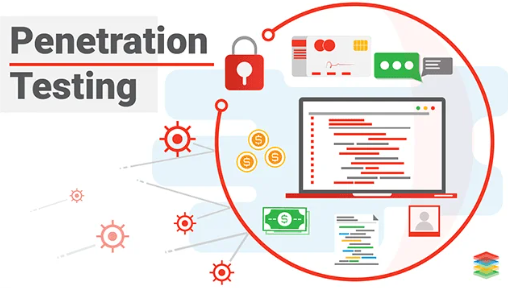
In today’s interconnected digital landscape, cybersecurity has become a critical priority for businesses and individuals alike. One of the most effective ways to assess and strengthen the security of your IT infrastructure is through penetration testing (or pentesting). But what exactly is it, and why should you consider it for your organization?
What Is Penetration Testing?
Penetration testing is a simulated cyberattack on your computer systems, applications, or networks to identify vulnerabilities before malicious hackers can exploit them. Performed by cybersecurity experts (often called ethical hackers), pentesting involves analyzing your systems to find weaknesses that could compromise your data, systems, or reputation.
This proactive approach to cybersecurity can reveal:
- Misconfigurations in networks or applications.
- Outdated software or unpatched vulnerabilities.
- Weak password policies or authentication mechanisms.
- Gaps in your security controls or incident response plans.
Types of Penetration Testing
Penetration tests can vary based on scope and objectives. Here are the most common types:
- Network Pentesting
Focuses on your external and internal network infrastructure, including firewalls, routers, and servers. - Web Application Pentesting
Targets vulnerabilities in websites and web-based applications, such as SQL injection, cross-site scripting (XSS), and authentication flaws. - Wireless Pentesting
Evaluates the security of your wireless networks, identifying risks like weak encryption protocols or unauthorized access points. - Social Engineering Tests
Simulates phishing attacks or other forms of human-targeted breaches to assess employee awareness and response. - Physical Penetration Testing
Examines the physical security of your organization, such as access to server rooms or sensitive documents.
Why Is Penetration Testing Important?
- Proactive Risk Mitigation
Identifying vulnerabilities before attackers do can save your organization from costly breaches and downtime. - Regulatory Compliance
Many industries require regular penetration testing to meet standards like GDPR, PCI DSS, or ISO 27001. - Strengthened Customer Trust
Demonstrating a commitment to robust cybersecurity practices builds trust with your customers and partners. - Enhanced Incident Response
Pentesting helps you test your security defenses and refine your response strategies.
How Often Should You Perform Penetration Testing?
While the frequency depends on your specific needs, industry best practices suggest:
- Annually for most businesses.
- After major system changes, such as deploying a new application or infrastructure.
- When new vulnerabilities or exploits are discovered in your technology stack.
Partnering with Experts
Penetration testing requires expertise, tools, and ethical boundaries. Partnering with certified professionals ensures comprehensive testing and actionable insights. Look for testers with certifications like CEH (Certified Ethical Hacker), OSCP (Offensive Security Certified Professional), or CISSP (Certified Information Systems Security Professional).
Final Thoughts
In a world where cyberattacks are increasingly sophisticated, penetration testing is not a luxury but a necessity. It provides a clear view of your security posture and ensures your defenses can withstand real-world threats.
By investing in regular pentesting, you safeguard your data, protect your reputation, and stay one step ahead of cybercriminals.
Need help with IT security? As an IT professional with over 25 years of experience, I can guide you on best practices, penetration testing, and more. Get in touch today to secure your systems.
Comments are closed